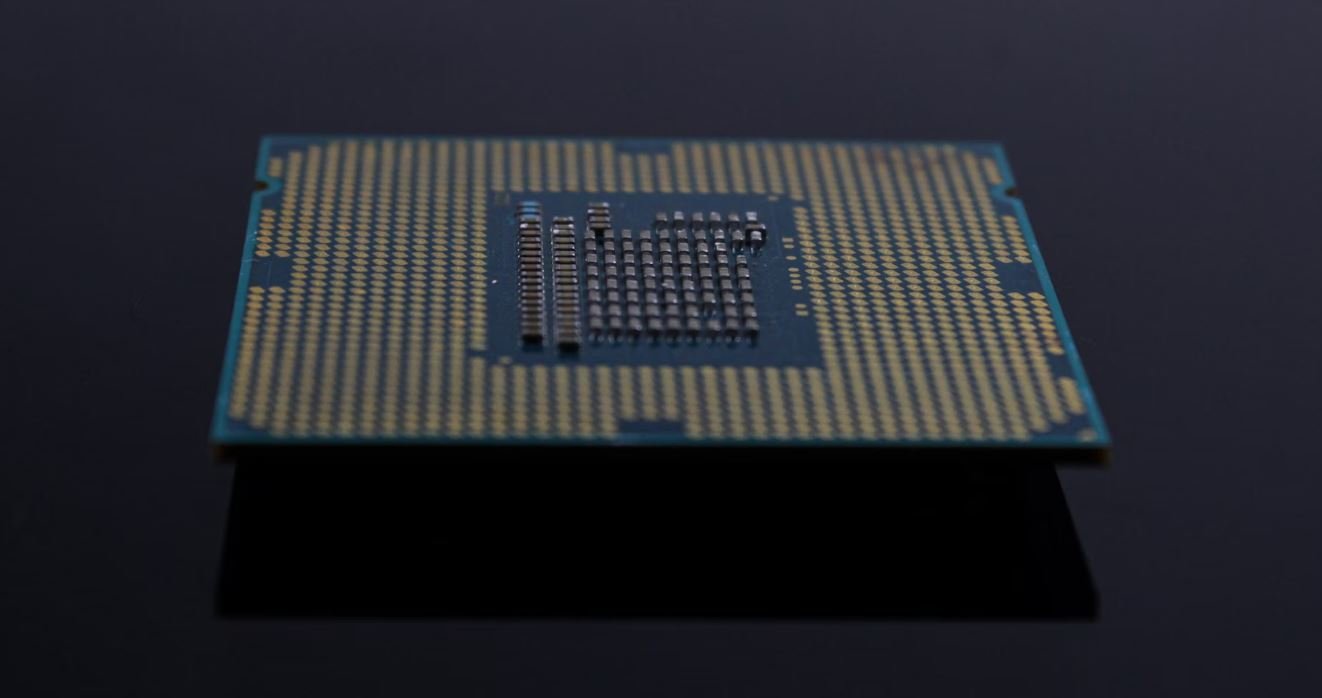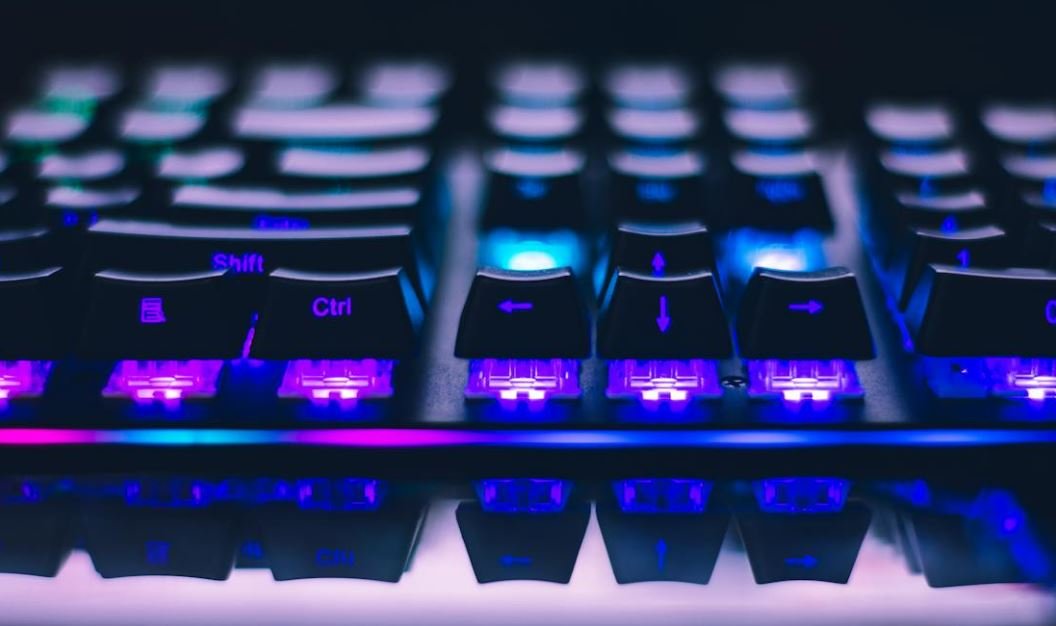Introduction:
As artificial intelligence (AI) continues to advance at an unprecedented rate, the complexities surrounding intellectual property (IP) issues become increasingly prominent. Many legal and ethical questions arise regarding the ownership and protection of AI-generated creations. This article delves into the key aspects of AI IP issues to provide a better understanding of the challenges faced in this rapidly evolving field.
Key Takeaways:
1. AI IP issues arise from the ownership and protection of AI-generated creations.
2. The legal and ethical complexities surrounding AI IP require careful consideration.
3. Balancing innovation and protection in AI development is crucial.
4. Existing IP laws may require adaptation to effectively address AI-related challenges.
5. Collaborative efforts are necessary to establish AI IP guidelines and standards.
Understanding AI IP Issues:
The rapid advancement of AI technology poses unique challenges to the traditional concept of intellectual property. With AI algorithms generating original artistic works, logos, and even music, determining ownership and protecting these creations becomes progressively intricate. **AI raises questions on whether the machine or its designer can claim ownership of the output**, challenging existing IP laws and regulations. AI may also infringe upon existing IP rights, either through unauthorized use or creation of similar works, raising concerns about fair use and infringement.
AI IP Challenges in Practice:
AI’s potential to create original works has led to a surge in copyright disputes. For example, the question of who owns the copyright of an AI-generated artwork has sparked legal battles. *In 2018, an AI-generated art piece titled “Portrait of Edmond de Belamy” was sold at an art auction for over $400,000, raising debates about the attribution of authorship.* Additionally, issues arise regarding patentability of AI inventions, considering that the outcomes generated are based on extensive training datasets rather than explicit human interventions.
Addressing AI IP Challenges:
To navigate the complexities of AI IP issues, adaptation and collaboration are necessary. Here are some suggested approaches:
1. **Adapting Existing IP Laws:** Governments and legal authorities need to analyze and update IP laws to address AI-generated creations adequately. This may involve incorporating new categories for ownership and protection, such as granting AI systems limited legal personality.
2. **Guidelines and Standards:** Collaborative efforts from AI developers, legal experts, and policymakers should establish clear guidelines and standards for AI IP issues. This will help ensure fair and consistent treatment of AI-generated creations across different jurisdictions.
3. **Transparency and Attribution:** AI developers should prioritize transparency, clearly attributing the contributions made by AI systems to foster responsible AI development. Highlighting the human involvement in designing and training AI algorithms can aid in determining IP ownership.
Tables:
Table 1: Examples of AI-generated Artwork Disputes
| Case | Core Issue |
|———————–|———————————|
| “Portrait of Edmond de Belamy” | Determining authorship and ownership of AI-generated art |
| “A Better Lemon Squeezer” | Copyright infringement and fair use disputes |
Table 2: Approaches to Address AI IP Challenges
| Approach | Description |
|——————————–|—————————————————————|
| Adaptation of IP laws | Updating existing laws to accommodate AI-generated creations |
| Establishing guidelines | Collaborative efforts to define clear standards for AI IP |
| Transparency and attribution | Clearly attributing contributions of AI and human involvement |
Table 3: Key Organizations in AI IP Discussions
| Organization | Description |
|———————–|——————————————————|
| World Intellectual Property Organization | Promotes discussion on IP challenges in AI |
| OpenAI | Advocates for responsible AI development |
| Partnership on AI | Multi-stakeholder organization addressing AI ethics |
Looking Ahead:
The fast-paced development of AI technology creates new complexity in the realm of intellectual property. As AI systems continue to evolve and generate more original works, the legal and ethical discussions surrounding AI IP issues will persist. *Finding a balance between encouraging innovation and protecting creators’ rights will be crucial for the future of AI-related IP management.*
In conclusion, navigating AI IP issues requires careful consideration, adaptation of existing IP laws, and collaborative efforts. Addressing these challenges will enable the development of a fair and consistent framework for AI-generated creations, fostering innovation while protecting the rights and interests of creators in the dynamic field of artificial intelligence.

Common Misconceptions
Misconception 1: AI can generate original content without infringing on intellectual property (IP) rights.
- AI algorithms are trained on existing datasets, so they can inadvertently replicate copyrighted material.
- AI-generated content may still be subject to IP laws, even if it was created by a machine.
- AI developers need to ensure they have the necessary permissions and licenses to avoid IP infringement.
Misconception 2: AI-generated work is not subject to copyright protection.
- AI-generated works can still enjoy copyright protection if they meet the criteria for originality.
- Copyright laws focus on the expression of ideas, rather than the creator’s intention.
- If an AI algorithm creates a work that is an original and creative expression, it can be protected by copyright, regardless of the lack of a human creator.
Misconception 3: AI can easily determine fair use of copyrighted material.
- AI algorithms may struggle to assess the subjective factors involved in fair use, such as the purpose and nature of the use.
- Determining fair use may require human judgment, as AI may not fully comprehend cultural and contextual nuances.
- AI tools can assist in identifying potential fair use cases, but it is ultimately up to humans to make the final judgment.
Misconception 4: AI can automatically remove copyrighted material from online platforms.
- AI-based content filtering systems can help identify potential copyright infringement, but they are not foolproof.
- AI algorithms may struggle with subtle nuances and context, leading to false positives or negatives in identifying copyrighted material.
- Human oversight is necessary to review and ensure the accuracy of AI-generated copyright infringement claims.
Misconception 5: AI can substitute the need for human involvement in resolving AI-related IP issues.
- While AI can assist in identifying and managing IP issues, human involvement is still crucial.
- Legal expertise and human judgment are required to navigate complex IP laws and regulations.
- Human intervention is necessary to address unique cases and assess the moral and ethical dimensions of AI IP issues.

AI Patents by Country
In recent years, the field of artificial intelligence (AI) has seen a significant increase in the number of patents filed worldwide. The table below illustrates the top five countries in terms of AI patents granted.
| Country | Number of AI Patents |
|---|---|
| United States | 7,692 |
| China | 5,501 |
| Japan | 2,819 |
| Korea | 1,942 |
| Germany | 1,518 |
AI Startups and Funding
The increase in AI innovation has also led to a surge in the number of startups specializing in this field. The table below showcases the top five countries by the number of AI startups and the total funding they have secured.
| Country | Number of AI Startups | Total Funding (in millions) |
|---|---|---|
| United States | 2,478 | 24,583 |
| China | 1,643 | 17,247 |
| United Kingdom | 538 | 6,362 |
| India | 425 | 4,987 |
| Canada | 319 | 3,812 |
AI and Intellectual Property
The rapid development and application of AI technology have brought about complex intellectual property (IP) challenges. The table below presents the three main IP issues surrounding AI and the corresponding percentage of affected companies.
| IP Issue | Percentage of Companies Affected |
|---|---|
| Patent Infringement | 42% |
| Data Privacy | 36% |
| Copyright Violation | 24% |
AI Job Roles
The advancements in AI have created a demand for specialized job roles. The table below presents the top five AI job titles and the average salary of each role.
| Job Title | Average Salary (USD) |
|---|---|
| Machine Learning Engineer | 106,000 |
| Data Scientist | 98,000 |
| AI Research Scientist | 126,000 |
| AI Software Developer | 92,000 |
| AI Ethicist | 84,000 |
AI Funding and Investment
The AI sector has been attracting substantial funding and investment. The table below presents the top five AI companies and the total investment they have received.
| Company | Total Investment (in billions) |
|---|---|
| OpenAI | 1.9 |
| Salesforce | 1.58 |
| UiPath | 1.34 |
| FiveAI | 1.28 |
| SenseTime | 1.22 |
AI in Manufacturing
The integration of AI in the manufacturing sector has led to improvements in efficiency and productivity. The table below highlights the five most common AI applications in manufacturing.
| Application | Percentage of Adoption |
|---|---|
| Quality Control | 48% |
| Predictive Maintenance | 41% |
| Product Design | 30% |
| Supply Chain Optimization | 26% |
| Inventory Management | 20% |
AI Ethics Concerns
The deployment of AI technologies has raised ethical concerns. The table below illustrates the top three ethical concerns associated with AI deployment.
| Ethical Concern | Percentage of Concern |
|---|---|
| Fairness and Bias | 39% |
| Privacy | 36% |
| Accountability | 25% |
AI in Healthcare
The healthcare industry has embraced AI for various applications. The table below outlines the five primary areas where AI technology is transforming healthcare.
| Application | Usage |
|---|---|
| Medical Imaging | Detecting abnormalities and aiding diagnosis |
| Patient Monitoring | Real-time patient health monitoring |
| Drug Discovery | Accelerating drug development process |
| Virtual Assistants | Interacting with patients and providing support |
| Predictive Analytics | Forecasting disease outbreaks and treatment outcomes |
AI in Education
The education sector has also begun incorporating AI to enhance learning experiences. The table below showcases five ways AI is utilized in the field of education.
| Application | Description |
|---|---|
| Personalized Learning | Adapting instruction to individual student needs |
| Automated Grading | Scoring assignments and exams using AI algorithms |
| Smart Content | Dynamic and interactive learning materials |
| Virtual Classrooms | Online platforms for remote learning |
| Intelligent Tutoring | Providing personalized feedback and guidance |
Conclusion
The rapid advancement of artificial intelligence has revolutionized various industries, with increased patent filings, the rise of AI startups, and significant funding in the field. However, this technological progress has also raised noteworthy intellectual property concerns, including patent infringement and data privacy issues. Additionally, the demand for specialized AI job roles has grown, offering lucrative opportunities. While exciting opportunities arise from the integration of AI in sectors like manufacturing, healthcare, and education, ethical concerns such as fairness, privacy, and accountability must be addressed. As AI continues to evolve, it is crucial for policymakers, businesses, and society to navigate the landscape, ensuring a balance between innovation and safeguards.
Frequently Asked Questions
What are the legal and ethical issues surrounding AI intellectual property (IP)?
The legal and ethical issues surrounding AI intellectual property encompass questions related to ownership, copyright, patents, and fair use of AI-generated intellectual property. These issues often arise when AI systems create original works, and it becomes crucial to determine who should be recognized as the legal owner of those creations.
How does AI challenge traditional intellectual property laws?
AI challenges traditional intellectual property laws by blurring the line between human and machine contribution to creative processes. As AI systems become more capable of independently generating novel works, legal frameworks must adapt to address questions of authorship, attribution, and the rights associated with AI-generated creations.
What is the role of AI in intellectual property infringement?
AI can play a role in intellectual property infringement by facilitating the automated creation or distribution of copyrighted content without proper authorization. This includes AI systems being used to generate counterfeit products, plagiarized content, or infringing on patented technologies.
How can businesses protect their AI-generated intellectual property?
Businesses can protect their AI-generated intellectual property by adopting various strategies, such as securing patents for novel AI technologies, implementing strong trade secret protection measures, and enforcing copyright protections for AI-generated works. Additionally, companies can consider entering into licensing agreements to control the use and distribution of their AI technologies.
What are the potential consequences of AI IP disputes?
Potential consequences of AI IP disputes include legal battles, reputational damage, financial losses, and hindrances to innovation. These disputes can be particularly complex and may require specialized expertise to resolve, involving issues like AI attribution, determining originality, and establishing ownership.
Are there specific regulations or international treaties addressing AI IP issues?
While specific regulations or international treaties solely focused on AI IP issues are currently limited, existing intellectual property laws in various jurisdictions can be applied to AI-generated content. Additionally, organizations and policymakers are actively discussing and exploring the need for new laws and regulations to address the unique challenges posed by AI-generated IP.
How can AI contribute to more efficient intellectual property management?
AI can contribute to more efficient intellectual property management by automating various tasks involved in IP protection, such as prior art searches, monitoring for potential infringement, and analyzing patent landscapes. AI can assist in streamlining the patent application process and provide valuable insights to improve the efficiency and accuracy of IP management strategies.
Can AI be patented as an invention?
In some cases, AI technologies can be patented as inventions if they meet the requirements for patent eligibility, including being novel, non-obvious, and possessing utility. However, the patentability of AI can be complex, as the involvement of algorithms, machine learning, and data-driven processes poses unique challenges when it comes to meeting these requirements.
What is the significance of data ownership in AI IP issues?
Data ownership plays a significant role in AI IP issues as AI systems heavily rely on data to generate insights and create new works. Clear guidelines on data ownership are crucial to determine the ownership and rights of AI-generated IP. The question of who has the rights to use, share, and monetize the data fed into AI systems must be addressed to avoid potential disputes.
What steps can be taken to address the ethical concerns of AI IP issues?
To address the ethical concerns of AI IP issues, it is important to promote transparency and accountability in AI development and deployment. This includes ensuring proper disclosure of AI-generated content, establishing guidelines for responsible AI use, and fostering collaborative efforts among stakeholders to develop ethical frameworks and best practices that address the unique challenges of AI IP issues.




